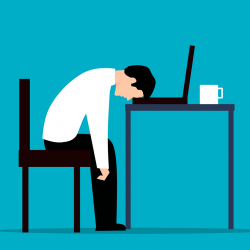To provide the best experiences, we use technologies like cookies to store and/or access device information. Consenting to these technologies will allow us to process data such as browsing behaviour or unique IDs on this site. Not consenting or withdrawing consent, may adversely affect certain features and functions.
The technical storage or access is strictly necessary for the legitimate purpose of enabling the use of a specific service explicitly requested by the subscriber or user, or for the sole purpose of carrying out the transmission of a communication over an electronic communications network.
The technical storage or access is necessary for the legitimate purpose of storing preferences that are not requested by the subscriber or user.
The technical storage or access that is used exclusively for statistical purposes.
The technical storage or access that is used exclusively for anonymous statistical purposes. Without a subpoena, voluntary compliance on the part of your Internet Service Provider, or additional records from a third party, information stored or retrieved for this purpose alone cannot usually be used to identify you.
The technical storage or access is required to create user profiles to send advertising, or to track the user on a website or across several websites for similar marketing purposes.
 In its latest whitepaper, Cendex, part of XpertHR, claims that staff at over half (53 percent) of UK organisations are working additional unpaid hours every day. A quarter (24 percent) of employers put this down to the pandemic and its resultant uptick in remote working, as they believe working from home blurs the line between work life and home life. (more…)
In its latest whitepaper, Cendex, part of XpertHR, claims that staff at over half (53 percent) of UK organisations are working additional unpaid hours every day. A quarter (24 percent) of employers put this down to the pandemic and its resultant uptick in remote working, as they believe working from home blurs the line between work life and home life. (more…)






 New research from beauty company
New research from beauty company 
 New research from
New research from 
 Women’s average working hours have taken a far smaller hit during the pandemic than men’s, with women who do not have children now working longer hours than ever before – in marked contrast to predictions of a ‘shecession’ at the start of the pandemic, according to new research by the
Women’s average working hours have taken a far smaller hit during the pandemic than men’s, with women who do not have children now working longer hours than ever before – in marked contrast to predictions of a ‘shecession’ at the start of the pandemic, according to new research by the 
 Research from
Research from 
 A report published by single parent charity,
A report published by single parent charity, 
 While working from home has surged in recent months, the use of flexible working hours – such as part-time, flexi-time and compressed hours – has fallen over the course of the Coronavirus pandemic, according to new
While working from home has surged in recent months, the use of flexible working hours – such as part-time, flexi-time and compressed hours – has fallen over the course of the Coronavirus pandemic, according to new 
 The UK government has had to make many changes to its healthcare system in the last year to stop the spread of coronavirus, including asking people to stay home when possible, prioritising higher-risk patients and putting many routine appointments on pause throughout the pandemic.
The UK government has had to make many changes to its healthcare system in the last year to stop the spread of coronavirus, including asking people to stay home when possible, prioritising higher-risk patients and putting many routine appointments on pause throughout the pandemic. 
 A survey by
A survey by 
 A new report from think tank Demos and Legal & General calls on the UK Government to back policy change that supports growth of hybrid working and local offices to drive forward its plans for regeneration and economic growth. The report,
A new report from think tank Demos and Legal & General calls on the UK Government to back policy change that supports growth of hybrid working and local offices to drive forward its plans for regeneration and economic growth. The report, 
 A
A 
 Progress for women in work could be back at 2017 levels by the end of this year as a result of the COVID-19 pandemic, according to analysis conducted for
Progress for women in work could be back at 2017 levels by the end of this year as a result of the COVID-19 pandemic, according to analysis conducted for 






